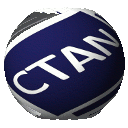Directory macros/latex/contrib/microtype
The microtype package
Subliminal refinements towards typographical perfection
(v3.2 – 2024/12/12)
Overview
The microtype package provides a LaTeX interface to the micro-typographic extensions that were introduced by pdfTeX and some of which have since also propagated to LuaTeX and XeTeX: most prominently, character protrusion and font expansion, furthermore the adjustment of interword spacing and additional kerning, as well as hyphenatable letterspacing (tracking) and the possibility to disable all or selected ligatures.
These features may be applied to customisable sets of fonts, and all micro-typographic aspects of the fonts can be configured in a straight-forward and flexible way. Settings for various fonts are provided.
Note that character protrusion requires pdfTeX (version 0.14f or later), LuaTeX, or XeTeX (at least version 0.9997). Font expansion works with pdfTeX (version 1.20 for automatic expansion) or LuaTeX. The package will by default enable protrusion and expansion if they can safely be assumed to work. Disabling ligatures requires pdfTeX (at least version 1.30) or LuaTeX, while the adjustment of interword spacing and of kerning only works with pdfTeX (at least 1.40). Letterspacing is available with pdfTeX (1.40), LuaTeX (0.62) or XeTeX.
The alternative package letterspace, which also works with plain TeX, provides the user commands for letterspacing only, omitting support for all other extensions.
The documentation can be found in microtype.pdf (User manual) and microtype-code.pdf (Implementation).
Installation
To install the package, use one of the following methods (in decreasing order of simplicity):
- Use the package manager of your TeX system (TeXLive:
tlmgr install microtype; MiKTeX: MiKTeX Package Manager).
- Download
microtype.tds.zipfrom CTAN, extract it in the root of one of your TDS trees, and update the filename database.
- Get the source (
microtype.zip) from CTAN and extract it, runlatexonmicrotype.insto generate the package and configuration files, and move all generated files into a directory where LaTeX will find them, e.g.,TEXMF/tex/latex/microtype/.
- To use the latest development version, clone the github repository at
https://github.com/schlcht/microtypeand runmake(or justlatex microtype.insto generate the run files).
License
This work may be distributed and/or modified under the conditions of the LaTeX Project Public License, either version 1.3c of this license or (at your option) any later version. The latest version of this license is in: https://www.latex-project.org/lppl.txt, and version 1.3c or later is part of all distributions of LaTeX version 2005/12/01 or later.
This work has the LPPL maintenance status 'maintained'.
This work consists of the files microtype.dtx, microtype-utf.dtx and microtype.ins and the derived files microtype.sty, microtype-pdftex.def, microtype-luatex.def, microtype-xetex.def, microtype.lua, letterspace.sty and microtype-show.sty.
Modified versions of the configuration files (*.cfg) may be distributed provided that: (1) the original copyright statement is not removed, and (2) the identification string is changed.
Copyright (c) 2004–2024 R Schlicht <w.m.l@gmx.net>
Download the contents of this package in one zip archive (2.8M).
microtype – Subliminal refinements towards typographical perfection
The package provides a LaTeX interface to the micro-typographic extensions that were introduced by pdfTeX and have since also propagated to XeTeX and LuaTeX: most prominently, character protrusion and font expansion, furthermore the adjustment of interword spacing and additional kerning, as well as hyphenatable letterspacing (tracking) and the possibility to disable all or selected ligatures.
These features may be applied to customisable sets of fonts, and all micro-typographic aspects of the fonts can be configured in a straight-forward and flexible way. Settings for various fonts are provided.
Note that character protrusion requires pdfTeX, LuaTeX, or XeTeX. Font expansion works with pdfTeX or LuaTeX. The package will by default enable protrusion and expansion if they can safely be assumed to work. Disabling ligatures requires pdfTeX or LuaTeX, while the adjustment of interword spacing and of kerning only works with pdfTeX. Letterspacing is available with pdfTeX or LuaTeX.
The alternative package ‘letterspace’, which also works with plain TeX, provides the user commands for letterspacing only, omitting support for all other extensions.
| Package | microtype |
| Bug tracker | https://github.com/schlcht/microtype/issues |
| Repository | https://github.com/schlcht/microtype/ |
| Version | 3.2 2024-12-12 |
| Licenses | The LaTeX Project Public License 1.3c |
| Copyright | 2004–2024 Robert Schlicht |
| Maintainer | Robert Schlicht |
| TDS archive | microtype.tds.zip |
| Contained in | TeX Live as microtype MiKTeX as microtype |
| Topics | Micro layout Letterspace |
| See also | pdfcprot |
